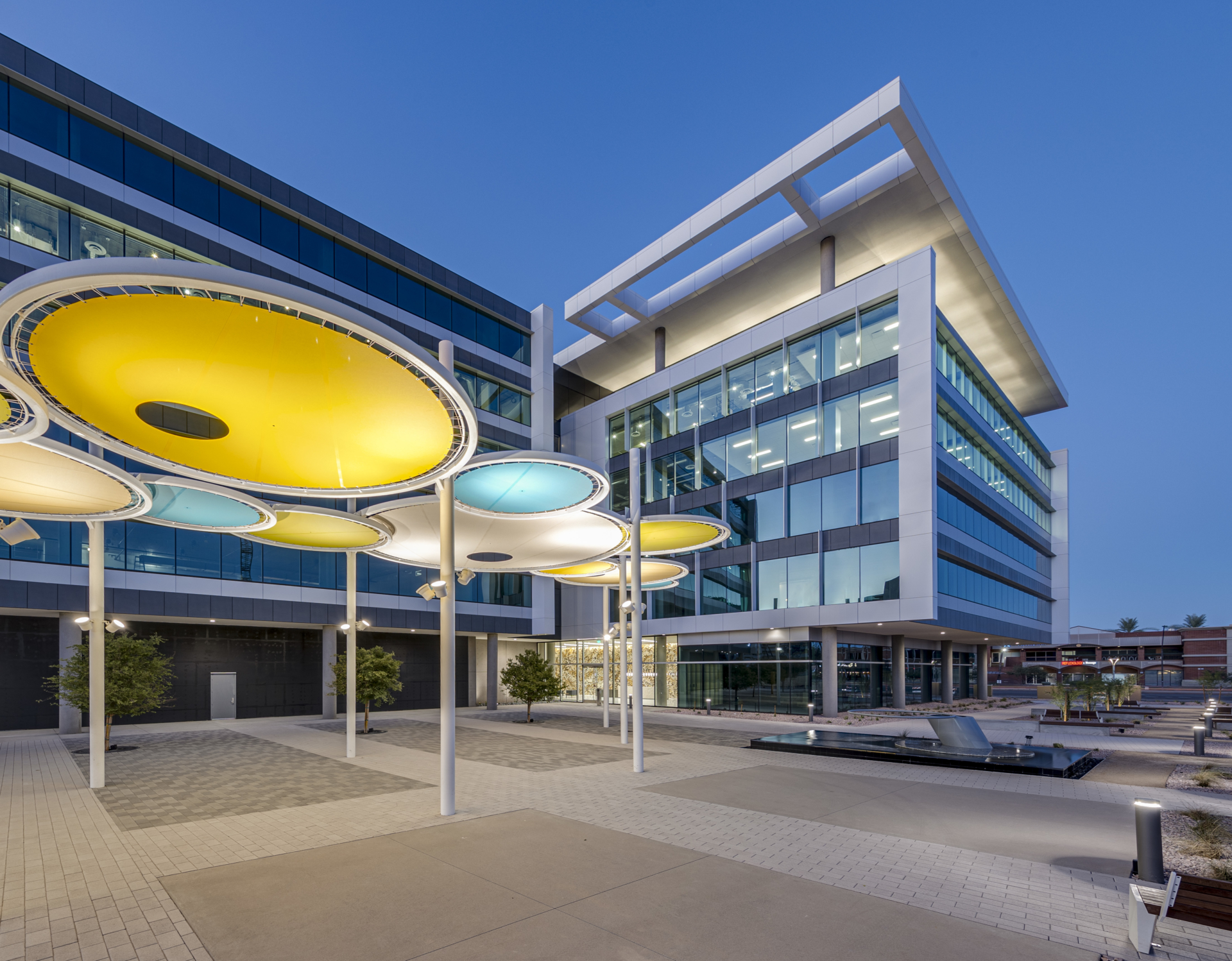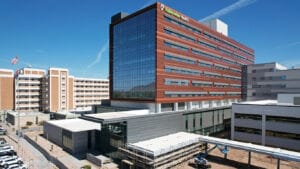Across the Phoenix Metro area, ASU has developed seven Innovation Zones with the aim of advancing the university’s mission to help the local and state economies by creating quality jobs, sales tax revenue, increasing surrounding private property values and prioritizing quality development that brings in private investment.
Innovation Zones are private and public partnerships linking the Valley’s local economies with over a hundred global businesses including Go Daddy, PayPal, State Farm, Walgreens and US Foods.
READ ALSO: ASU named most innovative university for 7th straight year
“Innovation Zones are a key piece of ASU’s Economic Development portfolio, and they deliver a plethora of openings for businesses to co-locate with us, have access to a vast network of student talent, and work with staff and faculty at one of the most prominent research institutions in the nation,” said Aric Bopp, ASU’s Economic Development executive director.
ASU Innovation Zones were built with economic progress in mind. It starts by fostering a cooperative environment in which high-level companies can be implanted in any of ASU’s seven zones: the Phoenix Biomedical Campus; Arizona Health Solutions Corridor; the ASU Polytechnic campus; SkySong, the ASU Scottsdale Innovation Center; ASU Research Park; ASU West campus; or the Novus Innovation Corridor, which is strategically located on ASU’s Tempe campus.
“Just over half of ASU graduates stay in Arizona to kickstart their careers,” Bopp said. “Almost a quarter million ASU graduates were employed in the state in 2018, generating an estimated $15.9 billion, and giving back $1.13 billion in state and local taxes. Overall, the economic effects of ASU operations on Arizona’s gross product in Fiscal Year 2019 was $4 billion.”
Cultivating a strong economy goes further beyond openings for collaboration, skill acquisition and research opportunities. It’s also about creating an environment in which to foster a talented, educated and skilled workforce able of progressing the industries of the future.
The Novus Innovation Corridor, spanning across downtown Tempe, is ASU’s biggest innovation project. Construction of completed and currently active projects in Novus are predicted to generate an economic impact of $1.86 billion. ASU also projects 33,734 jobs will be created by 2035 through office, hotel, multifamily and retail operations in Novus. More than 20,000 temporary construction jobs related to its development will also be generated.
ASU President Michael Crow gives credit to Novus for being a primary reason ASU has been ranked as America’s most innovated university over the past seven years.
“Development within the Novus Innovation Corridor aligns with our vision of being the leading American center for innovation and entrepreneurship at all levels,” said Crow in a statement. “The benefits to our students, faculty, the university, the City of Tempe and the business community are already being felt, and they will only increase as other visionaries construct new buildings and facilities to provide opportunities within Novus’ framework.”
The most recent development in Novus is the Piedmont, a multifamily structure that will add 318 units to the housing market by its completion in December.
“This is a rare opportunity where a university has all this undeveloped land, alongside the market prospects to build something that will essentially pay itself off,” says Brian Kearney, vice president of development for Catellus, the lead developer of Novus.
“Most of the units are able to switch from a bedroom to a living space when not being slept in,” Kearney said. “This development is not planned to be a home for large numbers of students. Nothing bars students from leasing these units and there will be students moving into these units, but students are not our primary customer.”
Development within Novus makes progress toward our vision of being the leading center for innovation in America,” said President Crow. “The benefits to our students, faculty, the university, the City of Tempe and the business community are already being felt, and they will only increase as other visionaries construct new buildings and facilities to provide opportunities within Novus’ framework.”




